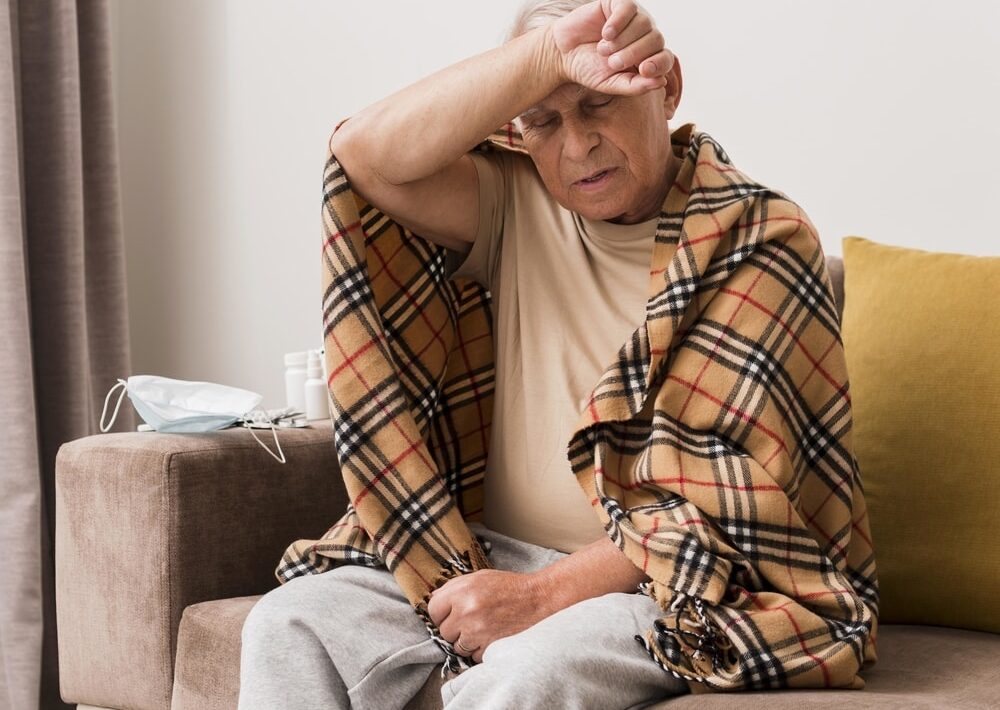Aging is inevitable, and it comes with several consequences beginning from a recurring number of severe health conditions. We often worry about what our old age would turn out to be like, and we try to keep ourselves as much secure as possible during our young phase of life.
An uncertain disease’s present situation has made us think twice about our health and our immunity strength. Not just the old, but the young are even more concerned about contracting the fatal disease and falling into the death trap. Hence a healthy and robust immune is very necessary.
But do you know that as you begin aging, your immunity begins decreasing in strength? It means that an old age person’s immunity system is not very reactive to the virus and pathogens that attack the body, ultimately attracting more disease to your body.
Although it might seem very obvious that the immune system loses its capability to perform actions as a person begins aging, certain technicalities must be aware of while it comes to their immune health and according to which specific measures are essential.
As a person grows old, the immune system begins responding less to the vaccine and cannot fight with pathogens and viruses. Researchers have concluded that the evolution of life in people since the beginning of time has changed the life expectancy rate to a greater extent.
Experts say that we humans are from Chimpanzees’ lineage until our ancestors decided to separate themselves, and over the past 200 years, the life expectancy rate kept increasing. But with an increase in the number of years to survive, the immune imbalance became one of the possibilities.
Let’s understand how this whole process of lower immune health takes its toll on older individuals with increasing age.
Innate & Adapt Immunity: The Relation with Aging
After much research and observation, science has concluded that as we humans separated from the lineage of Chimpanzees who relatively died earlier than humans, it led to the division of our immune system’s abilities.
Based on the functioning and resistance of immunity, it has been categorized into Innate Immunity, the natural resistance of our immunity and fixed in nature. This side of our immune functioning is the first line of defense as it is known against infection.
Innate Immunity can first hand try to resolve the issue when a virus passes through the body. But the inability to do so could lead to many chronic diseases and inflammation. On the other hand, Adapt Immunity plays the role of remembering the pathogen virus entering a host body. A human’s immune becomes prone to attack those viruses the next time it tries to inhibit the body’s functioning.
But when both these functions begin to lose their ability to work effectively during old age, it leads to the beginning of chronic inflammation, type 2 diabetes, etc. A weak adapt immunity means low-grade inflammation and diseases during old age such as dementia, cardiovascular disease, and other autoimmune condition. There are also chances that an aged individual’s body, due to his/her weak adaptive immunity, would not react to vaccination or any flu shot.
It is evident now that although inflammation is necessary to help our body recover from any acute disease if this inflammation persists for a more extended period, it seems to become a problem of chronic inflammation. Scholars have given permanent terminology to older adults’ disease due to its root cause determined as inflammation.
Innate Immunity and Aging
An average healthy young individual’s immunity automatically switches to anti-inflammatory after an occurrence of a disease. In an older adult, this process does not work as effectively as it should due to the accumulation of an immune cell known by the name senescent.
As Medical News Today has to say about the Senescent,
Senescent cells have shorter telomeres, which are the protective caps at the tips of chromosomes. Just as the plastic caps on the ends of shoelaces prevent them from fraying, telomeres prevent vital genetic material from becoming lost when the chromosome is copied during cell replication.
Telomeres get a little shorter every time a cell divides, until, eventually, division has to stop completely. If the cell survives, it becomes steadily more dysfunctional.
These Senescent cells are responsible for releasing cytokines that provoke inflammation and releases interleukin 6 (IL-6) & tumor necrosis factor-alpha (TNF-alpha). It has also been observed in older adults that IL-6 and TNF-alpha are responsible for an increased mortality rate, which leads to diseases such as neurodegenerative disorders, cancer, diabetes, etc.
To understand it more deeply, in medical terms, an increase in pro-inflammatory cells in the body automatically leads to a rise in immune cells known as M1 macrophages and a reduction in immunoregulatory cells. The growth and decrease cause an imbalance in the body, resulting in fat and issues in arteries.
Adaptive Immunity and Aging
Adaptive Immunity’s effective functioning means the T-cells can tackle infections in the body because of their remembering property that helps them fight diseases the next time those pathogens try to enter and inhibit the body’s functioning. These T-cells are experts in analyzing the cells that could help the body fight the previous disease.
But these T-cells, over some time, begin to shrink as more cells take their place to tackle infections in the body. But this shrinking process in older adults makes their bodies less effective in managing the pathogens, and the immune responses are relatively less in the body.
Hence, the vaccinations could not provoke any strong immune system responses, and then there is less protection from viruses. The basic idea is that this repeated immunization stops to be any more convincing as a person ages with time. These cytokines released by senescent cells lead to diminished immune performance. Then there are chances of stroke, autoimmune diseases, inflammation, etc.
How to reverse the performance of your aging Immune?
Age is an inevitable factor, and you cannot possibly escape the phase. Viral infections in older adults do not resolve themselves but attract even more disease that collectively increases the body’s problem.
There are certain activities which will more deeply analyze your immune issue and help make it better-
- It would help if you were more physically active because, as an individual age, his physical activity diminishes and might help in actually reversing the fundamental defect your immune creates inside the body. Maintaining muscle mass could help in building back strength as it leads to a reduction of inflammation.
- Indulging more into aerobic fitness could decrease the number of senescent cells in the body. Since more active individuals can produce more antibodies relatively to a less enthusiastic individual.
- Consuming diets such as leafy vegetables, considerate amounts of fish and poultry products, and relatively less red meat. It could lead to a lower risk of obesity, cancer, cardiovascular diseases, etc.
- Try to maintain a weight which is not significantly less and neither very fat. Accumulation of adipose tissue with an increase in age is a natural phenomenon, which becomes a cause of inflammation. Hence, there are fewer antibodies produced by these overweight older adults.
These pointers can try to help make your immune system better than before, but its definite results are still open-ended and require a more profound analysis.




